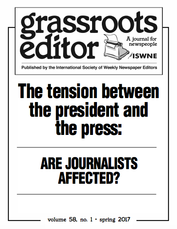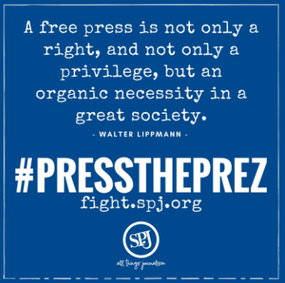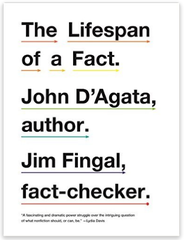
Click here for the podcast: www.jenniferkarchmer.com/podcasts.html#ElleToussi
Pay particular attention (go to 14:00) to the discussion of the lack of female trainers in the hostile environment training field. Can men effectively train women for dangerous assignments? Should more women be part of the teams preparing reporters for conflict reporting?
Join the conversation via these hashtags and links and comment on this blog below:
#WomenMatter
#WomenInJournalism
#PressFreedomMatters
Elle Toussi @ElleToussi
SPJ @spj_Tweets
SPJ International Community @SPJ_IJC
Jennifer Karchmer @journalist_jk
"Report: Violence against women journalists," by Annabelle Sreberny
“Violence and Harassment against Women in the News Media: A Global Picture"
“International News Safety Institute, Survey: violence against women journalists”





 RSS Feed
RSS Feed